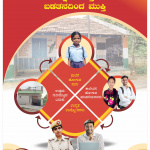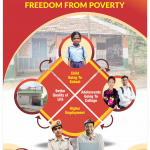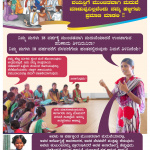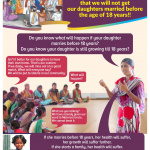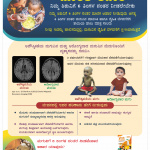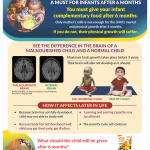Our field team, BAIF Yadgir, has been in regular contact with women SHGs across the District mobilizing them through personal interaction and specially designed IEC for starting the process of positive behavior change.We explained some of the more serious findings of the Base Line Survey, particularly regarding the general poor nutritional and health status of children and adolescents, and female illiteracy, and engaged with them to agree upon the priority areas that required behavior change.The women agreed that areas requiring urgent attention were:
a) preventing the extremely high rates of school drop outs, especially among girl students;
b) preventing early marriage among girls, again very high in the District; and
c) ensuring that infants are given adequate complementary feeding after 6 months. (The Base Line Survey indicated that 20% of children did not get any complementary feeding at all until 24 months.)
They cited reasons of poverty for the high incidence of school drop outs and pressures from elders and socio-cultural pressures for the early marriage of girls. As for the low rates of complementary feeding, lack of time to cook complementary foods for children, and non-availability of healthy and affordable ready to eat complementary foods in the market, were cited as the main reasons. While the mothers have a common sense understanding that children need to be fed, they were not aware of the importance of complementary food and its impact on the future growth and potential of their children. We have therefore created simple posters and films focusing on these three themes.
Pictures from the field
 Rastapur Village, Shahapur Taluk, Yadgir District
Rastapur Village, Shahapur Taluk, Yadgir District
 Hunashigi Taluk, Yadgir District
Hunashigi Taluk, Yadgir District
 Wadegra Taluk, Yadgir District
Wadegra Taluk, Yadgir District

